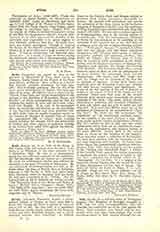

Avitus (ALCIMUS ECDICIUS), Saint, a distinguished Bishop of Vienne, in Gaul, from 490 to about 518, though his death is placed by some as late as 525 or 526. He was born of a prominent Gallo-Roman family closely related to the Emperor Avitus and other illustrious persons, and in which episcopal honors were hereditary. In difficult times for the Catholic Faith and Roman culture in Southern Gaul, Avitus exercised a favorable influence. He pursued with earnestness and success the extinction of the Arian heresy in the barbarian Kingdom of Burgundy (443-532), won the confidence of King Gundobad, and converted his son, King Sigismund (516-523). He was also a zealous opponent of Semipelagianism, and of the Acacian Schism at Constantinople. Like his contemporary, Ennodius of Pavia, he was strenuous in his assertion of the authority of the Apostolic See as the chief bulwark of religious unity and the incipient Christian civilization. “If the pope'”, he says, “is rejected, it follows that not one bishop, but the whole episcopate threatens to fall” (Si papa urbis vocatur in dubium, episcopatus videbitur, non episcopus, vacillare.—Ep. xxxiv; ed. Peiper). The literary fame of Avitus rests on a poem of 2,552 hexameters, in five books, dealing with the Scriptural narrative of Original Sin, Expulsion from Paradise, the Deluge, the Crossing of the Red Sea. The first three books offer a certain dramatic unity; in them are told the preliminaries of the great disaster, the catastrophe itself, and the consequences. The fourth and fifth books deal with the Deluge and the Crossing of the Red Sea as symbols of baptism. Avitus deals freely and familiarly with the Scriptural events, and exhibits well their beauty, sequence, and significance. He is one of the last masters of the art of rhetoric as taught in the schools of Gaul in the fourth and fifth centuries. Ebert says that none of the ancient Christian poets treated more successfully the poetic elements of the Bible. His poetic diction, though abounding in archaisms and rhythmic redundancy, is pure and select, and the laws of metre are well observed. It is said that Milton made use of his paraphase of Scripture in the preparation of “Paradise Lost”. He wrote also 666 hexameters “De virginitate” or “De consolatoria castitatis laude” for the comfort of his sister Fuscina, a nun. His prose works include “Contra Eutychianam Haeresim libri II”, written in 512 or 513, and also about eighty-seven letters that are of considerable importance for the ecclesiastical and political history of the years 499-518. Among them is the famous letter to Clovis on the occasion of his baptism. There was once extant a collection of his homilies, but they have perished with the exception of two and some fragments and excerpts. In recent times Julien Havet has demonstrated (Questions merovingiennes, Paris, 1885) that Avitus is not the author of the “Dialogi cure Gundobado Rege”, a defense of the Catholic Faith against the Arians, purporting to represent the famous Colloquy of Lyons in 449, and first published by d’Achery (1661) in his “Spicilegium” (V, 110-116). It is a forgery of the Oratorian, Jerome Viguier, who also forged the letter of Pope Symmachus (October 13, 501) to Avitus. The works of Avitus are found in Migne, P.L., LIX, 191-398. There are two recent editions: one by R. Peiper (in Mon. Germ. Hist.: Auct. Antiq., VI, Berlin, 1883), the other by U. Chevalier (Lyons, 1890).
THOMAS J. SHEEHAN

